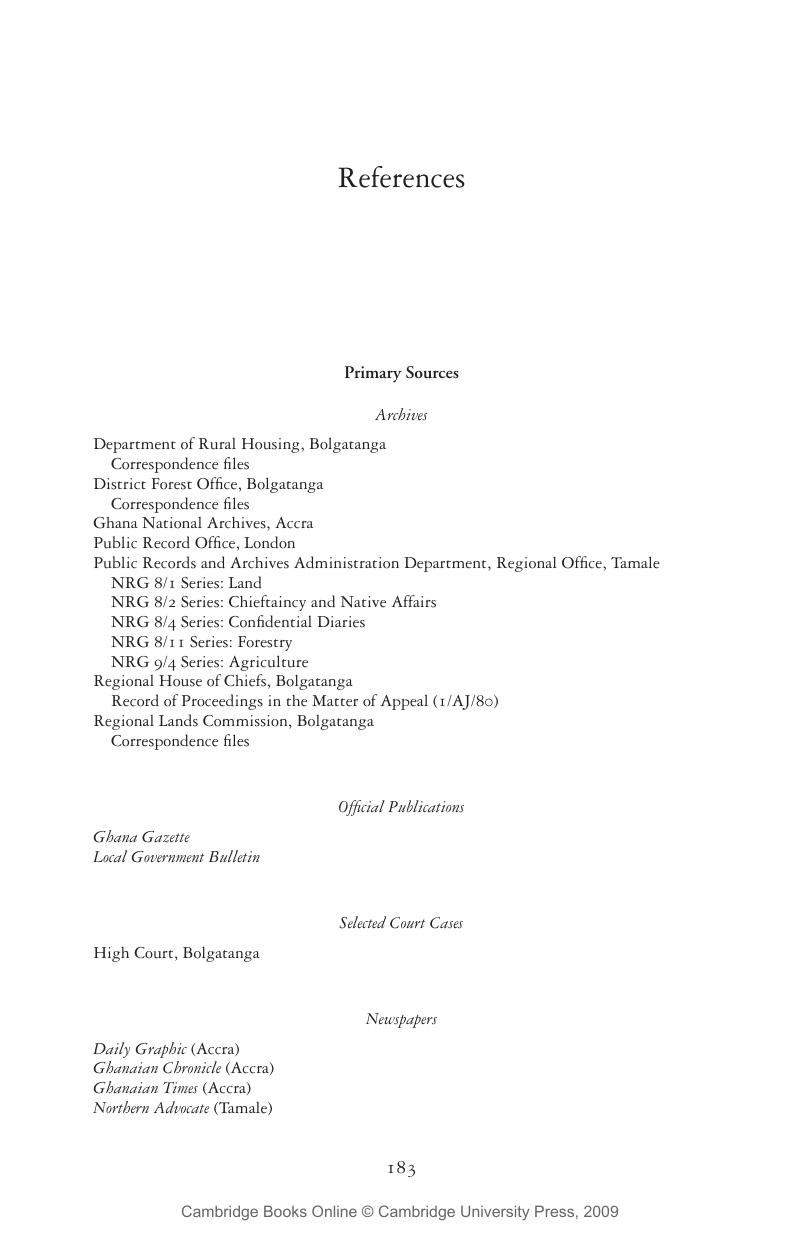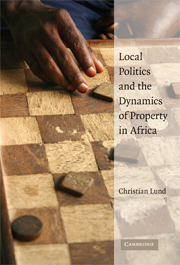Book contents
- Frontmatter
- Contents
- List of Maps, Figures, and Tables
- Acknowledgments
- Abbreviations
- Map 1 The Gold Coast, 1907
- Map 2 Regions of Ghana since 1983
- 1 Introduction
- 2 “This Situation Is Incongruous in the Extreme”: The History of Land Policies in the Upper Regions of Ghana
- 3 Who Owns Bolgatanga? The Revival of the Earthpriest and Emerging Tensions over Property
- 4 Seizing Opportunities: Chieftaincy, Land, and Local Administration
- 5 Settled Facts or Facts to Settle: Land Conflicts under Institutional Uncertainty
- 6 “Bawku Is Still Volatile”: Ethnopolitical Conflict and State Recognition
- 7 The Rent of Nonenforcement: Access to Forest Resources
- 8 Small Dams and Fluid Tenure
- 9 Conclusion
- References
- Index
- References
References
Published online by Cambridge University Press: 25 July 2009
- Frontmatter
- Contents
- List of Maps, Figures, and Tables
- Acknowledgments
- Abbreviations
- Map 1 The Gold Coast, 1907
- Map 2 Regions of Ghana since 1983
- 1 Introduction
- 2 “This Situation Is Incongruous in the Extreme”: The History of Land Policies in the Upper Regions of Ghana
- 3 Who Owns Bolgatanga? The Revival of the Earthpriest and Emerging Tensions over Property
- 4 Seizing Opportunities: Chieftaincy, Land, and Local Administration
- 5 Settled Facts or Facts to Settle: Land Conflicts under Institutional Uncertainty
- 6 “Bawku Is Still Volatile”: Ethnopolitical Conflict and State Recognition
- 7 The Rent of Nonenforcement: Access to Forest Resources
- 8 Small Dams and Fluid Tenure
- 9 Conclusion
- References
- Index
- References
Summary

- Type
- Chapter
- Information
- Local Politics and the Dynamics of Property in Africa , pp. 183 - 196Publisher: Cambridge University PressPrint publication year: 2008

